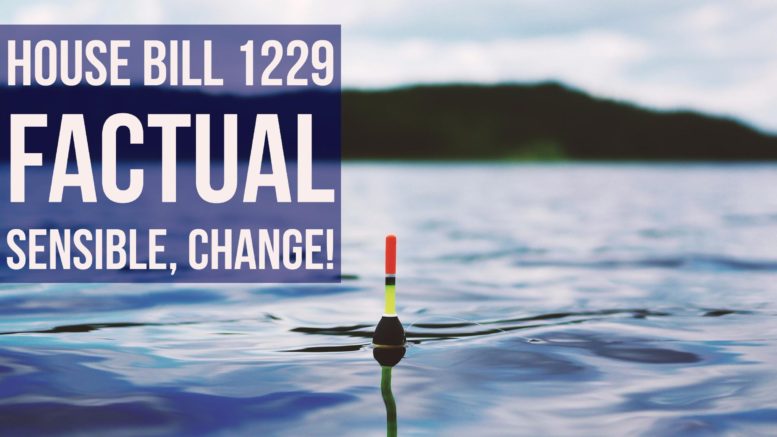We were thrilled to read the copy of recently introduced House Bill 1229. This would change, profoundly, the charter for the Department of Fish and Wildlife as it pertains to establishing state fishing seasons. The proposed changes affect an influential portion of the department’s charter (RCW 77.04, specifically) and while it’s worth reading the bill itself, here’s the TL;DR version (strikethru is proposed deletions, underlines proposed additions):
RCW 77.04.012
(2) The department shall conserve the wildlife and food fish, 2 game fish, and shellfish resources in a manner that does not impair the resource. In a manner consistent with this goal, the department shall seek to
maintain the economic well-being and stability of the fishing industry in the stateoptimize the economic value of the state’s fishery resource.(3) The department shall promote orderly fisheries and shall
enhance and improve recreational and commercial fishing in this state, when making fisheries management determinations and setting fishing seasons, maximize recreational fishing opportunity within available harvests before determining commercial fishing opportunity.
This has the potential to be a seismic event in fisheries management. It’s also incredibly sane. Recreationally caught fish provide dramatically more economic value to the state than the same fish commercially caught. More taxes, and most certainly more licensing revenue. In fact the bill authors proposed adding a new section to the RCW clearly articulating this argument:
The legislature further finds that sports fishing is a billion dollar industry in Washington and the single largest source of funding to the department of fish and wildlife. The seventy-one million dollars generated by the buyers of recreational fishing licenses in the 2013-2015 fiscal biennium represents over nineteen percent of the department of fish and wildlife’s total budget. By comparison, the commercial fishing industry only generated one and one-half million dollars in funding over the same time period to the department of fish and wildlife, which amounts to less than one-half of one percent of the agency’s overall budget.
It is right there in black and white.. $71M vs. $1.5M — that’s forty seven times the contribution to the departments budget. The bill also covers the benefits of selective recreational fishing, and the importance of stable season schedules to the recreational and tourism industries. In fact we’ll be covering the merits of fixed calendar window seasons, vs. fixed quota seasons in an upcoming story — so we couldn’t be happier to see it in this draft bill.
Do not underestimate the importance of House Bill 1229. It’s a huge huge opportunity! Our sincere thanks to the ten representatives who are sponsoring it!


While Section 2 and Section 3 seem congruous at present, they could potentially come into conflict. What if, in some circumstances (maybe in the future, or in a particular fishery), maximizing recreational fishing opportunity is inconsistent with optimizing economic value of the fishery resource? I’d prefer the more adaptable language of section 2 (while including the findings regarding the importance of sportfishing).
why can’t we change things up a little bit more.why don’t they introduce a new bill. that would be all the money the sports fisheries put in,(licenses purchases etc.) it would all be put back into our fisheries programs,like enhancing the hatcheries etc. raising and releasing more hatchery fish around the state.there are more and more people moving here and love and enjoy the sport. we need really need something like this to keep up with the growth
I would also like to see enhanced warm water fisheries
Seems like progress is being made on understanding the economic impact and social value of sport fishing and other related activities (crabbing, shrimping, and clamming. Let’s hope that by pressuring our lawmakers that we can prevail. I sent my letter to Senator Pearson. Have you?
Hans d radtke phd. Prepared washington states commercial fishing economic contribution analysis.In 2007 the economic contribution was 3.9 billion dollars.I don’t know where your economic numbers come from?Dr. radtke’s work can be found in many publications,give it a look.How is replacing a persons livelihood with another persons leisure activity good economics?
We’ve read Radtke’s paper, and suspect you have not… Here’s the link. You’ll find that his numbers are huge because he is comparing apples to aircraft carriers. The topic is Non-Tribal commercial fishing vs. Non-Tribal sport fishing. TO get his numbers for “commercial” he adds in:
a) TRIBAL fishing (which is certainly commercial–but not governed by this House Bill in any way)
b) “Distant Water Fisheries” — which is SE Alaska and BC intercepts of our runs of fish. Again, outside the scope of this House Bill
c) Shellfish Farming/Aquaculture — which again is out of scope of this bill
So you keep right on posting your distorted comments, and we’ll keep correcting them.
Mr. Omney: I can respond to your rhetorical question “How is replacing a persons livelihood with another persons leisure activity good economics?” with two easy to understand observations. First, the commercial entity pays a pittance of WDFW’s costs to produce and manage each commercial fishery compared to what the recreational fishers pay for what is a lesser opportunity per participant. Secondly, looking at the overall contribution to the economy one has to wonder where you think all of the goods and services purchased by recreational anglers come from. I will give you a hint – they come from hard working folks earning a livelihood.